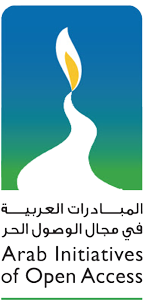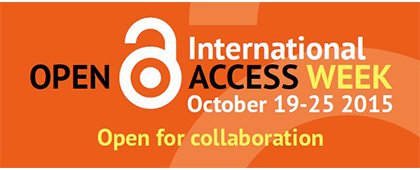تتفاوض الأمم المُتحدة بشأن خُطة تنمية جديدة تلي أهداف
الإنمائية للألفية، ستوجه هذه الخُطة جميع الدول لمناهج كيفية تحسين حياة الناس،
وتضع إطارًّا لمجموعة جديدة من الأهداف يتم الوصول إليها في الفترة من 2016 و2030.
نؤمن نحن الموقعين أدناه أن زيادة إتاحة الوصول إلى المعلومات
والمعرفة في المُجتمع وهو ما تيُسره تكنولوجيا الاتصالات والمعلومات، يدعم التنمية
المُستدامة ويُطُور حياة الناس .
المبادئ:
ترمي التنمية المُستدامة إلى ضمان الازدهار ورفاهية الناس
اجتماعياًّ واقتصادياًّ على المدى الطويل، وللوصول إلى ذلك تعُد قدرة الحكومات
والبرلمانيين والسلطات والمُجتمعات بما فيها المُجتمع المدني والقطاع الخاص بل
والأفراد على اتخاذ قرارات مبنية على المعرفة.
وفي هذا السياق، يكون الحق في المعرفة حقاًّ يُحُدث تحويلاً
جذرياًّ .تدعم إتاحة الوصول إلى المعلومات التنمية بتمكينها الناس خاصة المُهمشين
منهم ومن يعيشون في فقر، كي:
•
يُمُارسوا حقوقهم المدنية والسياسية
والاقتصادية والاجتماعية والثقافية .
•
ينشطوا اقتصادياًّ ويُصُبحوا مُنتجين
ومُبتكرين .
•
يتعلموا مهارات جديدة ويقومون
بتطبيقها.
•
يُثُروا الهوية الثقافية والتعبير
عنها.
•
يُشُاركوا في ُصُنع القرار في مُجتمع
مدني نشط وفعال .
•
يبتكروا حلولاً مُجتمعية لما يواجه
التنمية من تحديات .
•
يضمنوا المُحاسبة والشفافية والُحُكم
الرشيد والمُشاركة والتمكين .
•
يقوموا بقياس مدى التقدم الذي يتم
إحرازه في الالتزامات العامة والخاصة بشأن التنمية المُستدامة .
الإعلان:
ووفقاًّ لما توصلت إليه اللجنة رفيعة
المستوى لجدول الأعمال الانمائي لما بعد 2015،
مُشاورات برنامج الأمم المُتحدة الانمائي (UNDP)
لما بعد 2015،
تقرير مجموعة العمل المفتوحة، حيث أقروا الدور الأساسي الذي تلعبه إتاحة الوصول
إلى المعلومات في دعم التنمية ،ونقُر نحن الموقعين أدناه بـ:
1.
أن الفقر
مُتعدد الأبعاد وترتبط عملية القضاء عليه بضمان تحقيق التنمية المُستدامة في
مُختلف المجالات .
2.
يجب تحقيق
التنمية المُستدامة في إطار حقوق الإنسان، حيث:
أ . الحد من عدم المساواة من خلال تمكين
وتعليم ودمج الفئات المُهمشة ومنها المرأة والأقليات والمٌهاجرين وذوي الاحتياجات
الخاصة والمسنين والأطفال والنشء.
ب . يُمُكن
الارتقاء بالمساواة بين الجنسين والمُشاركة الكاملة اجتماعياًّ واقتصادياًّ
وسياسياًّ من خلال تمكين السيدات والفتيات بمساواتهم في الحصول على التعليم .
ج .يُمُكن تقوية الكرامة والاستقلال بضمان
إتاحة وظائف مُلائمة للجميع.
3.
تعُد زيادة
إتاحة المعلومات والمعرفة بدعم من الاتجاه العالمي لمحو الأمية ركيزة للتنمية
المُستدامة. ستسمح إتاحة معلومات وبيانات جيدة بصورة أكبر ومُشاركة المعلومات
بتوظيفٍ أكثر وأكثر شفافية للمصادر.
4.
يملكُ وسطاء
المعرفة مثل: المكتبات ودور الوثائق ومنظمات المُجتمع المدني وقادة المُجتمع
والإعلام المهارات والمصادر اللازمة لمُساعدة الحكومات والمؤسسات والأفراد على
التواصل وتنظيم وهيكلة وفهم البيانات الأساسية لتحقيق التنمية، وذلك من خلال:
أ. التزويد بمعلومات عن الحقوق
الأساسية والخدمات العامة والبيئة والصحة والتعليم وفرص العمل والنفقات العامة
التي تدعم المُجتمعات المحلية والشعوب لإرشادها نحو التنمية .
ب .تحديد الحاجات المُلحة والمشاكل التي تعُاني منها الشعوب
والتركيز عليها .
ج. كسر الحواجز الإقليمية والثقافية؛
لتيسير التواصل وتبادل الحلول الإنمائية والتي يُمُكن تعديلها لكل حالة؛ من أجل
تحقيق أثر أكبر .
د.
ضمان
استمرارية إتاحة وصول الجمهور للتراث الثقافي والسجلات الحكومية والمعلومات تحت
إدارة المكتبات ودور الوثائق الوطنية وغيرها من المؤسسات الثقافية.
هـ. توفير مُنتديات ومساحات عامة لمُشاركة مُجتمعية ومُشاركة
في ُصُنع القرار بصورة أوسع .
و. إمداد الناس بالتدريب والمهارات التي تسُاعدهم الوصول إلى
المعلومات والخدمات وفهمها بحيث يحققون أكبر استفادة.
5.
يُمُكن
استخدام تكنولوجيا الاتصالات والمعلومات للتوسع في الاتصالات وزيادة سرعة الخدمات
وإتاحة المعلومات الهامة وخاصة في المناطق النائية .كما يمكن ان تستخدم المكتبات
ووسطاء المعلومات الأخرى تكنولوجيا
المعلومات و الاتصالات لردم الفجوة بين السياسات الوطنية
والتنفيذ المحلي لضمان أن فوائد التنمية تصل إلى كل المناطق.
6.
لذا نحن،
الموقعون أدناه، ندعو الدول الأعضاء في الأمم المتحدة إلى الاعتراف بأن الوصول إلى
المعلومات، والمهارات اللازمة لاستخدامها بفعالية، مطلوبة من أجل التنمية
المستدامة، وضمان أن يكون هذا هو المعترف به في جدول أعمال التنمية لما بعد عام 2015 من خلال:
أ) الاعتراف بحق الجمهور في الحصول على
المعلومات والبيانات، مع احترام الحق في الخصوصية الفردية.
ب)الاعتراف
بالدورالهام للسلطات المحلية، وسطاء المعلومات والبنية التحتية مثل تكنولوجيا
المعلومات والاتصالات وشبكة معلومات مفتوحة كوسيلة للتنفيذ.
ج) اعتماد السياسات والمعايير
والتشريعات لضمان استمرار التمويل والنزاهة والمحافظة عليها وتوفير المعلومات من
قبل الحكومات، وضمان وصول الناس لها.
د) وضع الأهداف والمؤشرات التي تمكن من
قياس أثر الحصول على المعلومات والبيانات و تقديم تقارير سنويه عن التقدم الذى تم
تحقيقه "(DA2I) تقرير".








